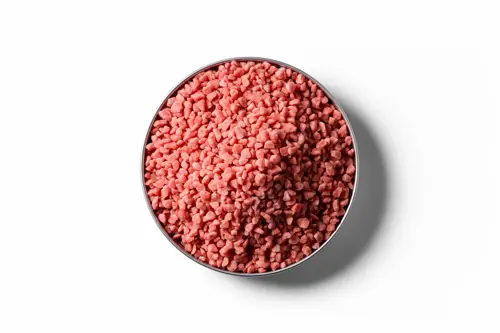Granular Potassium Chloride
- Home
- Products
- Fertiliser
- Granular Potassium Chloride


Potassium Chloride is one of the main forms of straight potassium fertiliser, as it has a higher potassium content than other fertilisers and dissolves readily. Potassium Chloride may be grey/white/pink or red, depending on origin.
-
Why Use
- Has a higher potassium content than other fertilisers and dissolves readily
- Is the only form of potassium used for pasture
Mixes well with all other fertilisers and is rarely used on its own
-
Safety Information
Potassium Chloride Safety Data Sheet
Caution when mixing
Potassium Chloride generally mixes well with other products and is rarely used on its own.
Segregation may occur when mixed with product with differences of particle size.
Compatibility
-
Benefits
- Has a higher potassium content than other fertilisers and dissolves readily Is the only form of potassium used for pasture
- Mixes well with all other fertilisers and is rarely used on its own
- Is a cost effective straight quick release potassium source, which can be used for both capital and maintenance applications
- Replaces lost potassium when hay or silage is removed from the farming system
Potassium Chloride is a cost effective straight quick release potassium source, which can be used for both capital and maintenance applications.Potassium Chloride is mainly used for Pastoral, cropping and other chloride tolerant crops. It is the only form of potassium used for pastures.
-
Application and storage
Potassium Chloride can be applied at any time when needed, although split applications will give a more constant nutrient supply for the soil. Potassium Chloride has a high salt meaning when Potassium Chloride dissolves in soil, the soil solution salt concentration is greater compared to that from other fertilisers. Therefore care must be taken to minimise the risk of germination injury, particularly if high rates are applied under dry soil conditions.
Actual spreading rates will vary according to farm type, climate, productivity, soil type and crop type. Soil testing and fertiliser plans are available to ensure you use the right product at the correct rate. Call our Customer Centre for information.
Clean equipment after use to avoid corrosion.
As with most solid fertilisers, Potassium Chloride can be stored over a season as long as it is kept in a cool, dry, well ventilated area.
Potassium is found in clay and rock particules, but is released only slowly by chemical weathering. Once the K has been released it is available for uptake by plants but may also be lost by leaching. Taking hay or silage removes potassium from the system, and this needs to be replaced as soon as possibly after crop removal.
-
Why Use
- Has a higher potassium content than other fertilisers and dissolves readily
- Is the only form of potassium used for pasture
Mixes well with all other fertilisers and is rarely used on its own
-
Safety Information
Potassium Chloride Safety Data Sheet
Caution when mixing
Potassium Chloride generally mixes well with other products and is rarely used on its own.
Segregation may occur when mixed with product with differences of particle size.
Compatibility
-
Benefits
- Has a higher potassium content than other fertilisers and dissolves readily Is the only form of potassium used for pasture
- Mixes well with all other fertilisers and is rarely used on its own
- Is a cost effective straight quick release potassium source, which can be used for both capital and maintenance applications
- Replaces lost potassium when hay or silage is removed from the farming system
Potassium Chloride is a cost effective straight quick release potassium source, which can be used for both capital and maintenance applications.Potassium Chloride is mainly used for Pastoral, cropping and other chloride tolerant crops. It is the only form of potassium used for pastures.
-
Application and storage
Potassium Chloride can be applied at any time when needed, although split applications will give a more constant nutrient supply for the soil. Potassium Chloride has a high salt meaning when Potassium Chloride dissolves in soil, the soil solution salt concentration is greater compared to that from other fertilisers. Therefore care must be taken to minimise the risk of germination injury, particularly if high rates are applied under dry soil conditions.
Actual spreading rates will vary according to farm type, climate, productivity, soil type and crop type. Soil testing and fertiliser plans are available to ensure you use the right product at the correct rate. Call our Customer Centre for information.
Clean equipment after use to avoid corrosion.
As with most solid fertilisers, Potassium Chloride can be stored over a season as long as it is kept in a cool, dry, well ventilated area.
Potassium is found in clay and rock particules, but is released only slowly by chemical weathering. Once the K has been released it is available for uptake by plants but may also be lost by leaching. Taking hay or silage removes potassium from the system, and this needs to be replaced as soon as possibly after crop removal.